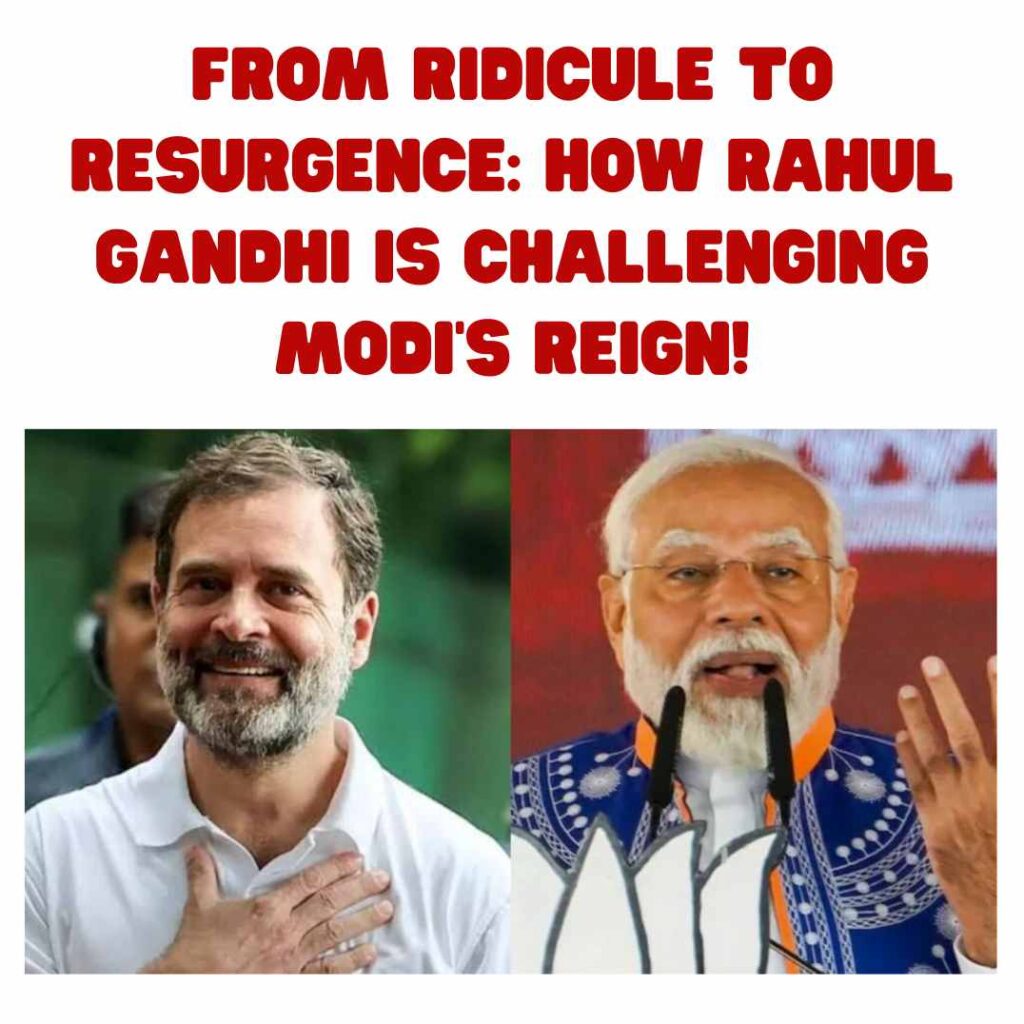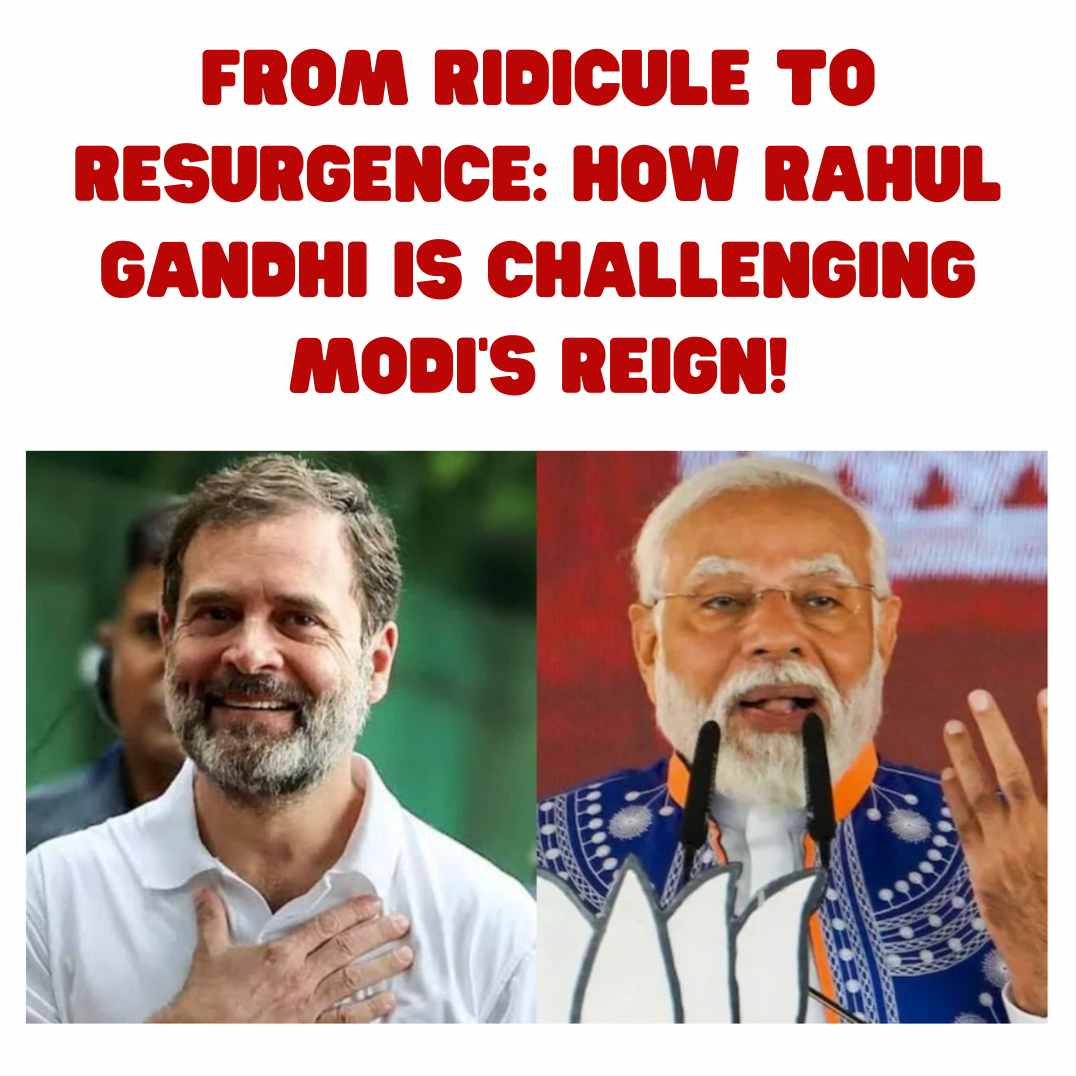Introduction
For over ten years, Rahul Gandhi, a leading figure in Indian politics and a member of the Indian National Congress (INC), faced constant ridicule and criticism. Many doubted his leadership abilities and questioned his effectiveness. Despite these challenges, recent political developments suggest a significant shift in India’s political landscape. Under his leadership, the INC has managed to slow down the seemingly unstoppable force of Prime Minister Narendra Modi’s Bharatiya Janata Party (BJP). Let’s explore how Rahul Gandhi’s efforts have led to this change and what it means for Indian politics.
Rahul Gandhi’s Political Journey
Early Struggles
Rahul Gandhi entered politics with a heavy burden. As the son of former Prime Minister Rajiv Gandhi and the grandson of Indira Gandhi, expectations were high. However, his early years in politics were marked by skepticism and doubt. Critics labeled him inexperienced and out of touch with the common people.
Constant Criticism
Over the years, Rahul Gandhi faced relentless criticism from opponents and the media. His speeches were often mocked, and his political strategies were questioned. Many believed he lacked the charisma and leadership qualities needed to challenge Narendra Modi, who was gaining popularity and power.
The Rise of Narendra Modi
Modi’s Popularity
Narendra Modi became the Prime Minister of India in 2014, leading the BJP to a historic victory. His image as a strong, decisive leader resonated with many Indians. Modi’s economic policies, his focus on nationalism, and his ability to connect with the masses made him immensely popular.
The Modi Juggernaut
Modi’s leadership was often described as a juggernaut – a powerful, unstoppable force. Under his leadership, the BJP won several state elections, further consolidating its power. The party’s dominance seemed unchallenged, and the INC struggled to find a foothold.
Rahul Gandhi’s Strategy to Counter Modi
Connecting with the People

Rahul Gandhi realized the importance of connecting with the common people. He started traveling extensively, visiting villages and small towns. By listening to people’s concerns and addressing their issues, he began to rebuild his image as a leader who cares about the masses.
Addressing Key Issues
Gandhi focused on key issues that directly affected the lives of ordinary Indians. He spoke out against rising unemployment, agrarian distress, and the impact of economic policies on the poor. By highlighting these issues, he resonated with a significant portion of the population.
Building Alliances
Understanding the importance of unity, Rahul Gandhi worked on building alliances with other political parties. By forming coalitions, he strengthened the opposition against the BJP. This strategy proved effective in several state elections, where the united opposition managed to challenge the BJP’s dominance.
Key Moments of Success
State Election Wins
Under Gandhi’s leadership, the INC and its allies achieved significant victories in several state elections. These wins were crucial in slowing down the BJP’s momentum and showcasing the potential of a united opposition.
Effective Campaigns
Rahul Gandhi led several successful campaigns that highlighted the shortcomings of the Modi government. These campaigns focused on real issues faced by the people, making them highly effective. Gandhi’s ability to articulate these issues helped in gaining public support.
The Impact on Indian Politics
Renewed Hope for INC
The successes under Rahul Gandhi’s leadership have brought renewed hope for the INC. The party, which was struggling to stay relevant, has found new energy and purpose. Gandhi’s efforts have shown that with the right strategy, it is possible to challenge the BJP’s dominance.
A More Balanced Political Landscape
The slowing down of the Modi juggernaut has led to a more balanced political landscape in India. The presence of a strong opposition is crucial for any democracy. It ensures that the ruling party is held accountable and that diverse voices are heard.
The Road Ahead
While the recent successes are significant, the road ahead for Rahul Gandhi and the INC is still challenging. They need to build on their momentum and continue addressing the issues that matter to the people. Consistent efforts and strategic alliances will be key to sustaining their gains and further challenging the BJP.
Conclusion
Rahul Gandhi’s journey in Indian politics has been a rollercoaster. From being ridiculed and criticized to becoming a leader who can challenge the powerful BJP, his transformation is noteworthy. By connecting with the people, addressing key issues, and building alliances, he has managed to slow down the Modi juggernaut. This shift not only brings hope for the INC but also contributes to a more balanced and vibrant political landscape in India. The coming years will be crucial in determining how this political narrative unfolds, but one thing is clear – Rahul Gandhi has emerged as a significant player in Indian politics.

















What do you think?
It is nice to know your opinion. Leave a comment.